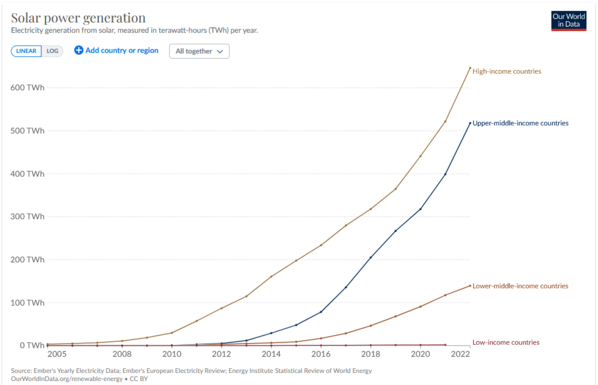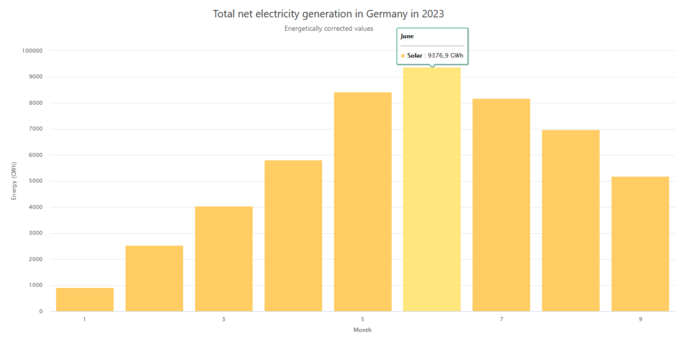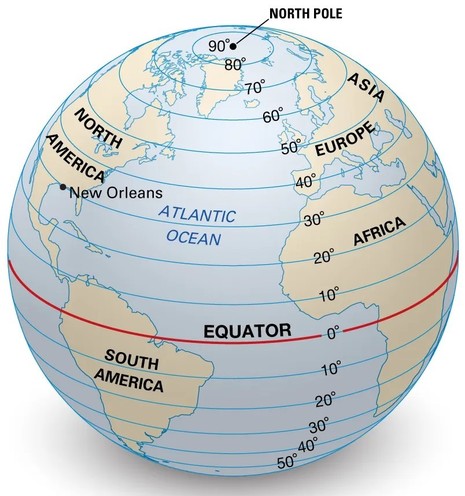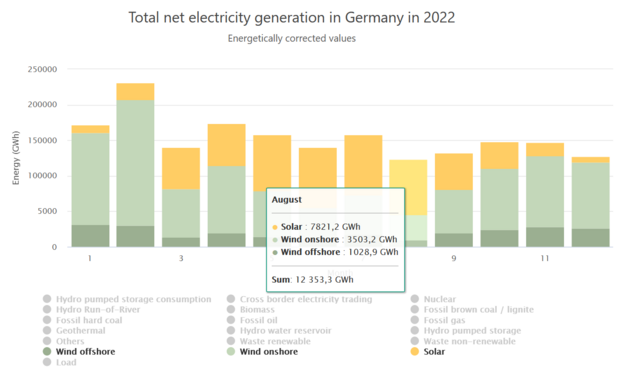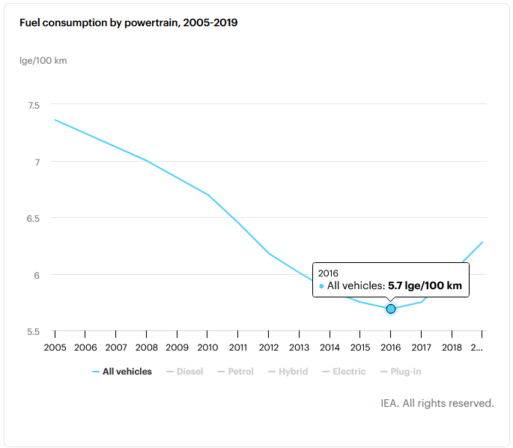Recent searches
Search options
"""
Economy Minister Robert Habeck has for months pushed for an energy subsidy scheme, arguing that German industry faces five tough years before the transition to renewable energies bears fruit. The top Green politician has warned that, without state support, "we will no longer have industry," as companies would shift operations to countries like France or the U.S., where energy prices are much lower.
"""
https://www.politico.eu/article/germany-energy-price-subsidy-industry-competition/
The panic about the economic stagnation is from the energy price shock (Russian gas disappeared) and the slow-down in China. But:
"These outside shocks have exposed cracks in Germany’s foundation that were ignored during years of success, including lagging use of digital technology in government and business and a lengthy process to get badly needed renewable energy projects approved."
https://apnews.com/article/germany-economy-energy-crisis-russia-8a00eebbfab3f20c5c66b1cd85ae84ed
@CelloMomOnCars One can only laugh at this point when reading passages like these:
"The government wants to have 215 GW of solar installed in Germany by 2030, more than tripling existing capacity in seven years."
Why laugh? Because 215 GW of #solar with 10% capacity factor (because it's Germany, not California) will roughly replace 20GW of #nuclear power that they retired since 2011. So many years lost...
The climate community tends to bash on Germany for having reduced its nuclear fleet after the Fukushima incident.
I'm looking for an article I once read that says it is exactly that event, and Germans' willingness to pay - through the nose - for renewable energy, that helped jumpstart the nascent commercial PV market. The rest is (Chinese) history.
I'll look a little harder for that article, it's interesting.
I take that back: in fact, German willingness to pay high prices for energy predates Fukushima. It started in 2004 when Germany introduced generous feed in tarriffs for rooftop solar.
"Germany’s deployment of wind and solar when the technologies were expensive is now widely celebrated as the reason why significant production capacity has been set up worldwide, leading to plummeting prices for the benefit of developing countries in particular."
https://energytransition.org/2016/01/how-germany-helped-bring-down-the-cost-of-pv/
Even before the war in Ukraine and before Russia cut off fossil gas flows to Europe, Germans paid some of the highest electricity prices in the world.
The generation cost is only 25% of the consumer price. The rest is taxes and charges, many having to do with building out more renewables, strengthening and expanding the electric grid, etc. It's an *investment*, in other words. Smart.
@CelloMomOnCars @jackofalltrades
To some degree, but unfortunately the lifespan of solar/wind is about 20 years. So a lot of those costs are ongoing.
And the costs are not neutral politically. The public pressure is mounting, see https://mas.to/@jackofalltrades/110821335616876668 or https://mas.to/@jackofalltrades/110695257146173675
@jackofalltrades @CelloMomOnCars
Yes and that's only going to intensify when petrol/gasoline cars are banned.
I think the west is in denial about the coming energy transition. The countries that dominate the next century will be those that have access to reliable energy sources. Nuclear, geothermal (and to a lesser degree) hydro. With an emphasis on 'reliable'.
The other joker is that the so called 'green' transition is heavily dependent upon mining, but mining needs oil. Lithium batteries, or hydrogen, are too damn heavy and lack the energy density.
@jackofalltrades @CelloMomOnCars
Obviously climate change is real and a huge problem. But all of the solutions that don't assume significant degrowth, seem to be in total denial about the scale of the challenge.
I came to realize that what is important to most governments, as well as to most people is not actually stopping #ClimateChange, but keeping things the same for as long as possible.
Western countries want to hold onto their imperial privilege. Their citizens want to continue their way of life.
In effect, any "green" policies will only work insofar as they don't conflict with the societal values mentioned above.
Installing new and shiny solar panels produced on the other side of the globe with cheap labor and lax environmental regulations? Hell yeah.
Denying yourself the pleasure of international vacations, a cheeseburger or the latest electronic bauble? No way!
Keeping things are they are is not the great thing most people think it is. If you think about it carefully, our current lives are not that great. That is, compared to how it could be, once we unshackle ourselves from fossil fuel dependence, the colonialism that requires, and the costs it brings.
We can do better.
Try this:
https://www.washingtonpost.com/opinions/2023/03/15/rebecca-solnit-climate-change-wealth-abundance/
@CelloMomOnCars @jackofalltrades
I agree, but unfortunately most people in the west disagree with us.
And it would be a dramatic change. Hopefully we could hang onto stuff like washing machines and vacuum cleaners, along with antibiotics. But large cities and computers are probably doomed. And our children will probably have to work harder than we do, much of it hard physical work that we've abandoned. It's not the easiest thing to sell.
People on here get upset if you suggest that maybe cars shouldn't be a thing, because it would mean they can't visit their grandmother who lives in a remote village. The fact that there may not be a village, or grandmother, if we do nothing doesn't seem to occur to them.
Most people in the west have been brainwashed, and need de-programming.
Nobody's gonna take my washing machine!
My goal is to use my e-bike and eventually use a carshare for the heavy grocery shopping, and a rental car for trips. No more car maintenance! Imma dig up my driveway and plant veggies and flowers.
Sometimes how hard the work is physically is okay if it's meaningful work, rather than - say - jumping when the boss tells you to jump. It will be different, yes.
BTW, I'm not sure if it's fair to say that growth of solar production has been "for the benefit of developing countries in particular".
See the attached chart.
That has been largely an effect of redlining former colonies. If you had to pay a - very large - premium on interest on your loans, you would also have a hard time getting your industrial sector going.
I'm not arguing with the data on the chart - I'm asking why that data is the way it is, while obviously the Global South has the superior insolation.
It's a version of thinking women can't be doctors or engineers, thereby wasting the talent of half the population.
We're in total agreement here. The only way to tackle #ClimateChange is to do it equitably.
So I only wanted to point out that saying that the increased #solar production has been "for the benefit of developing countries in particular" is disingenious. It *could* have been for the benefit of developing countries, it *should* have been, but it *wasn't*.
To me it's the same argument people bring up against #degrowth:
"What about the developing countries, you want to keep people in poverty, you eco-fascist!"
No, my sweet summer child, it's the so-called "developed" countries that need degrowth, that's who we're talking about.
I find that it's very often rich people propaganda that screams "think about the poor" whenever one casts doubts on their free market "solutions".
@jackofalltrades @CelloMomOnCars
It's a part of 'the climate deniers playbook': showing a starving african mother with 1 lightbulb in her hut and lamenting that only (cheap) fossil fuels will raise her out of poverty.
Absolutely disgusting when you remember that the fossil fuel industry has always played a huge part in imposing the kind of merciless capitalism that causes extreme poverty
https://nebula.tv/climatedeniersplaybook/
Thank you for the recommendation. Need to listen to this, especially two episodes caught my eye.
"Electric Cars Will Save Us" sound like a fun time.
"You Owe Your Life to Oil & Gas" should be good to challenge my preconceptions, because I think it may be true to some extent, or at the very least it's a complicated issue.
@jackofalltrades @CelloMomOnCars just wanting to add in this post as confirmation of what you're saying about solar not being built in poor countries https://mastodon.social/@urlyman/111103727082366859
@Brendanjones @jackofalltrades
Wow.
At the recent meeting in Nairobi, leaders of African countries were saying that the continent can be a provider of climate solutions (and everyone needs to stop painting it as only a victim of climate change - although it is that too).
This graphic really supports that.
@CelloMomOnCars @jackofalltrades
Willingness to pay, and also willingness to subsidize solar/wind even in situations where it made little sense (because the location doesn't generate sufficient power).
But Germany was able to do this in part because it had a ready supply of natural gas, which meant it had backup power for when it didn't have sufficient solar/wind/hydro. Without gas, you have to find a storage solution. Storage solutions are not very good, and unfortunately there's not much reason to think they will ever be sufficient. At least if we want reliable energy. Which the modern world needs.
@jackofalltrades @CelloMomOnCars 215/3 = 72 ish, so am laughing in *UK abject failure* where we have 14.4 GW installed and a population only 20% smaller
Tories have been the tireless handmaidens of the fossil fuel industry for decades. Maybe time for a change; isn't the election next year at the latest?
@CelloMomOnCars @jackofalltrades constitutionally, the election itself doesn’t have to be until January 2025, when we have the opportunity to install a supremely neoliberal incarnation of the Labour Party with strongly authoritarian instincts
The invention of "New Labour" was maybe not such a bright idea.
If it's any consolation, #solar at this latitude isn't so great anyway.
Germany currently has 75.17 GW of installed solar capacity.
In June solar generated 9376.9 GWh resulting in a capacity factor of 17%. Nice, right? Well, in January solar generated 917,5 GWh resulting in capacity factor of 1.7%.
The idea that solar can meet the energy needs of Germany is quite ill-informed IMHO.
For comparison, average solar capacity factor for the whole US varies between 13.1% in December and 33.4% in June.
Source: https://www.eia.gov/electricity/monthly/epm_table_grapher.php?t=epmt_6_07_b
@jackofalltrades @CelloMomOnCars that must be the southern states dragging the US average up, right?
@jackofalltrades @CelloMomOnCars although I note that even a northern state like Maine is at the same latitude as the Bordeaux estuary. I guess the US as a whole is a lot more south than I tend to think of
Yep. Comparing by latitudes the US spans roughly between Morocco and Italy. Germany and UK are at a similar latitude to southern Canada.
Despite the high altitude, solar is being developed in both Germany and famously rainy Netherlands.
I don't double-guess those developers, I assume they did their due diligence, and they would not be investing in solar in these regions if they didn't think there was money to be made!
The secret sauce: wind energy.
Wind and solar are complementary in NL and D.
@CelloMomOnCars @jackofalltrades we'll definitely install lots more solar in the global north, while telling ourselves that the scale and shape of our economy doesn't need to fundamentally change, only to find that it *really, really* did and we’d done not remotely enough in the interim to ensure that we had the means to flow enough of the build-out back into a rebuild when it wears out 3 decades later. Woohoo!
@CelloMomOnCars @jackofalltrades this is not to rain on solar or any other form of renewables. We absolutely need them. But we desperately need to bring a reality check to the party.
We'll maybe think about doing that in the 2030s when we should have been doing it decades ago
@jackofalltrades @CelloMomOnCars @urlyman The problem is that there's a ton of money to be made installing Greenwash.
Something being financially viable is an anti-indicator of it's being green, as often as not.
TlDr; Commercial success != environmental success
@spyro @jackofalltrades @CelloMomOnCars agreed. Our economics have literally no price signal for sustainability. Madness
@CelloMomOnCars @urlyman Indeed, it makes more sense when #solar and #wind are combined. However, the variability is still quite big.
Based on 2022 data, in Germany there was 68.5 GW of solar, 58.1 GW of onshore wind and 8.2 GW offshore wind.
If we treat this as a combined 134.8 GW system, we are going to get a spread of generation between 12,353 GWh in August (capacity factor 12.3%) and 23,105 GWh in February (capacity factor 25.5%).
BTW in Germany electricity demand is higher in the winter.
To again compare that with the US...
I dug the numbers for 2022 from EIA. US had 110.1 GW of solar and 140.9 GW of wind for a total 251 GW system.
Wind+solar generated 44,427 GWh in August (capacity factor 23.8%) and 64,523 GWh in April (capacity factor 35.7%). Both top and bottom bounds were decided by the wind output, as it generates more than twice the energy than solar.
Overall, the US gets double returns on their solar+wind investment compared to Germany or UK.
@jackofalltrades @CelloMomOnCars according to my maths and some digging, US energy consumption per capita is 1.76x that of Germany and 3.8x that of the UK.
US:
energy demand: 100.41 quadrillion Btu (2022)
population: 333 million
Germany:
energy demand: 14.29 qn Btu (2021)
population: 83 million
UK:
energy demand: 5.32 qn Btu (2021)
population: 67 million
My numbers are slightly different, but the general conclusion is correct.
2021 data for energy consumption:
USA: 88.52 qn Btu (25,945 TWh)
Germany: 12.1 qn Btu (3,549 TWh)
UK: 6.82 qn Btu (1,999 TWh)
Source: https://ourworldindata.org/grapher/primary-energy-cons?tab=chart&time=2021&country=GBR~DEU~USA
I can see that 100.41 qn Btu number listed on the EIA site: https://www.eia.gov/energyexplained/us-energy-facts/ though.
Would be nice to know the reason for the discrepancy.
@jackofalltrades @CelloMomOnCars thanks. Good to see that, as you say, the *relative* amounts are roughly the same.
And yes, the EIA was my US source.
So now check this out, 2019 data:
USA
avg engine power: 192 kW
avg kerb weight: 1768 kg
avg fuel consumption: 8.6 lge/100km
gasoline price: 0.79 $ PPP/litre
https://www.iea.org/articles/fuel-economy-in-the-united-states
UK
avg engine power: 110 kW
avg kerb weight: 1518 kg
avg fuel consumption: 6.3 lge/100km
gasoline price: 1.59 $ PPP/litre
https://www.iea.org/articles/fuel-economy-in-the-united-kingdom
German numbers are very similar to UK's.
The cheaper the energy the more wasteful people are with it, it's that simple.
Here's another interesting trend reversal: the lowest point for the average car fuel consumption in the UK was 2016. After that point Brits started buying bigger and heavier cars and the fuel consumption has been growing ever since.
The exact same thing can be seen in Germany.
@jackofalltrades @CelloMomOnCars
As Bowie might have sung…
Aaargh bop, do-do-do-do-do-do-do-do
Fk fk SUV fashion
@jackofalltrades @urlyman @CelloMomOnCars is there any more recent data? at least at the EU level, there was a big drop in 2020 when the 95g/CO2 fleet average became law, and AFAIK that was met.
@gsnedders @urlyman @CelloMomOnCars
Note that I was talking about fuel/energy consumption, not CO2 emissions. EVs can be wasteful too.
There is no data for 2020+ in that IEA report, but there are other reports, like this one from the European Commission: https://climate.ec.europa.eu/eu-action/transport/road-transport-reducing-co2-emissions-vehicles/co2-emission-performance-standards-cars-and-vans_en
"""
As the new target started applying in 2020, the average CO2 emissions from new passenger cars registered in Europe have decreased by 12% compared to the previous year and the share of electric cars tripled.
"""

@jackofalltrades @urlyman @CelloMomOnCars Ah, was unclear if it was measuring "fuel consumption" (as labelled, which is presumably 0 for a BEV) or "energy consumption" (which isn't!).
And sure, CO2 and energy consumption differ, but CO2 emissions is a very good proxy given for fuel consumption given for both petrol and diesel ICEs it's directly proportional.
@gsnedders @urlyman @CelloMomOnCars
"lge" is short for "litres of gasoline equivalent".
Based on 2019 data for the UK, averages for each type of powertrain were:
petrol: 6.7 lge/100km
diesel: 6.0 lge/100km
hybrid: 4.7 lge/100km
plug-in hybrid: 2.4 lge/100km
electric: 2.1 lge/100km
You can explore this data yourself at https://www.iea.org/articles/fuel-economy-in-the-united-kingdom
@jackofalltrades @gsnedders @CelloMomOnCars I infer that the lge for electric is a function of how clean (or not) the electricity it's charged from is.
In which case, it's kind of depressing to see that the lge in 2019 was slightly higher than in 2011. Wonder which winkers were in government during that period?
@urlyman @gsnedders @CelloMomOnCars
Not at all, lge is a measure of energy, not emissions.
These numbers mostly show a difference in efficiency of an internal combustion engine vs an electric motor. It will always be about three times less, as 60-70% of energy is lost as heat in ICE cars.
@Julianoe @jackofalltrades @CelloMomOnCars madness knows no borders
@jackofalltrades @urlyman @CelloMomOnCars I'm sure this is true in Ireland. The number of egregiously large gas guzzlers on the road is quite astonishing (giant Landrover Discovery models eg), and most seem to have one person in them most of the time. They pay more road tax but it's clearly nothing like sufficient yet to persuade many people to opt for smaller vehicles.
@samueljohnson @jackofalltrades @urlyman
This is the "Supersize Me" model applied to cars: you push the large ones and don't give the customer a chance to buy the small ones, and your profits rise.
This is why US streets have become much more dangerous in the past decade: it's mostly SUVs now. (Learn the lesson: Don't let this happen to you!)
@jackofalltrades @urlyman @CelloMomOnCars And this is why energy should not have One Price, but should instead be metered and distributed more based on actual need, and if metered at all, metered on a progressive scale.
@pettter @urlyman @CelloMomOnCars
But that would be communism!
@jackofalltrades @CelloMomOnCars @urlyman The seasonal variability can be compensated by using pumped hydro (possibly using modifications of existing facilities?) or compressed air (new builds) as storage.
Fossil fuels have a century of infrastructure built around them. It's not too surprising that renewables might need some storage infrastructure of their own.
@quixote @jackofalltrades @CelloMomOnCars indeed. But the issues are the *time available* to build out the storage and the scale of demand if we don’t do it in time, bearing in mind that we have less than a decade of Paris 1.5° budget left and (according to Kevin Anderson) have been burning through that budget at about 1% per month.
Added to which there are signals that the deleterious effects are greater than were anticipated nearly a decade ago
@jackofalltrades @CelloMomOnCars @quixote @urlyman Bollocks.
I've done the math on the storage requirements. It's astronomical. No chance on hell with even pumped hydro (which has an enormous environmental footprint) or compressed air (worthless at realistic pressures).


